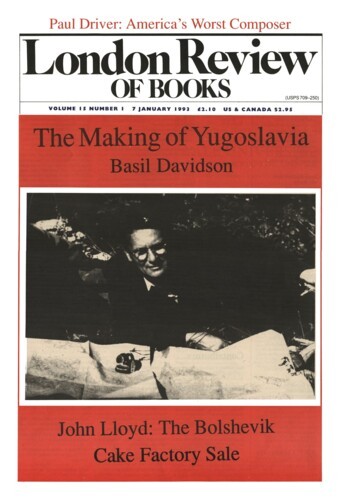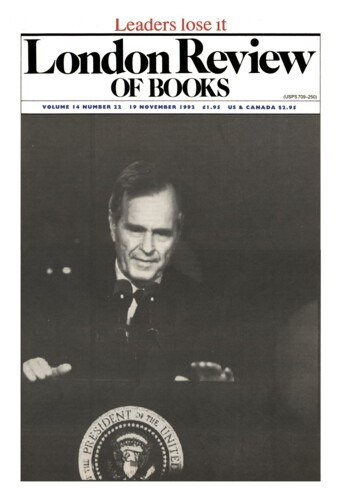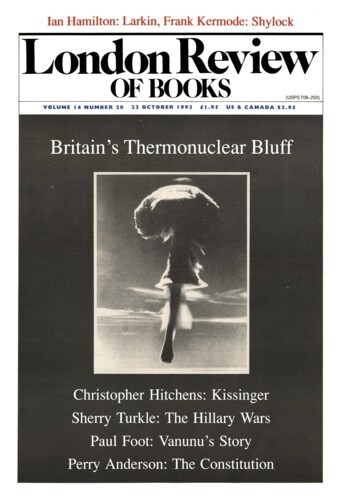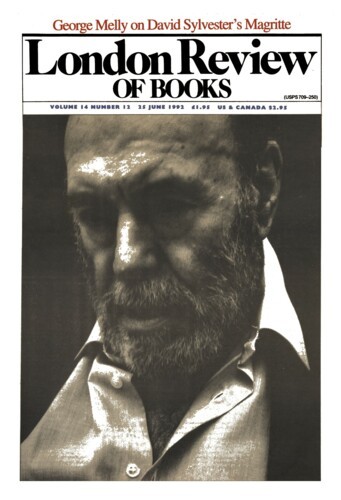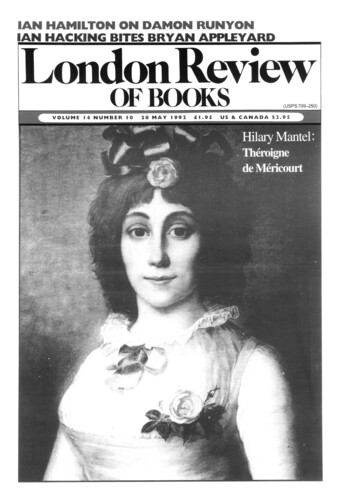Diary: In Moscow
John Lloyd, 7 January 1993
Let us suppose that Russia is no less a democratic state than any usually referred to in this way; let us, that is, overlook the fact that its democratic periods resemble the tiny windows set in the wall of a Russian church; and with this excised from our minds, let us consider the past year. A new government takes over, with a clearly defined economic team headed by Yegor Gaidar, a son and grandson of famous and privileged Communists, an academic said to be the star of his generation, a former senior editor of Kommunist, the CP’s main theoretical journal, and of Pravda, the Party’s daily paper. The declared aim of this government is to push the country into a market economy as soon as may be. It points approvingly to the Polish ‘model’ pioneered by Leszek Balczerowicz, deputy prime minister in charge of finances in Poland’s first post-Communist government – and even brings Mr Balczerowicz over from Poland to give his blessing.’
